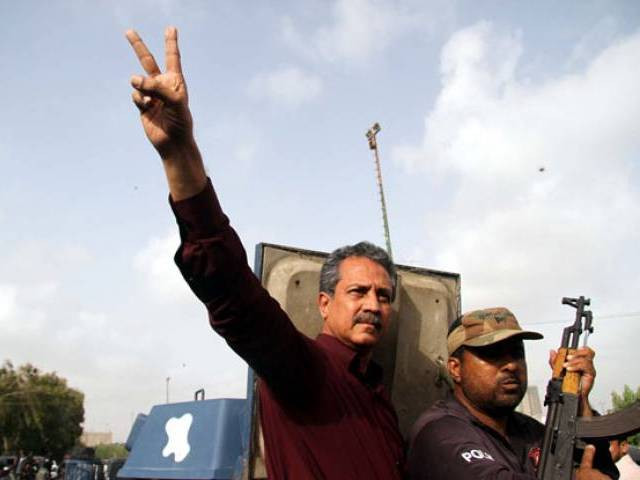Politicians under arrest
On July 19, four prominent politicians were arrested in connection with a terror facilitation case

Waseem Akhtar makes a victory sign as he is being shifted to Karachi Central Jail on Tuesday. PHOTO: EXPRESS
Whether there is truth to the allegations of discrimination, the fact remains that these arrests and denial of bail do send a message to the public and the political leaders in this country. Too often, cases against those in power have been left uninvestigated because of the clout and sometimes fear that their positions incur in the law-enforcement agencies and courts meant to hold them accountable. However, the government has made clear that there are no exceptions when it comes to terrorism. This turn of events also speaks of a power shift in Karachi where individuals and political leadership once deemed unshakeable has, within the past couple of years, suffered blows to its reputation of invincibility. It is now up to the courts to conduct free and fair trials that do not fall prey to political or ethnic prejudice while also upholding the law of the land.
Published in The Express Tribune, July 21st, 2016.
Like Opinion & Editorial on Facebook, follow @ETOpEd on Twitter to receive all updates on all our daily pieces.















COMMENTS
Comments are moderated and generally will be posted if they are on-topic and not abusive.
For more information, please see our Comments FAQ